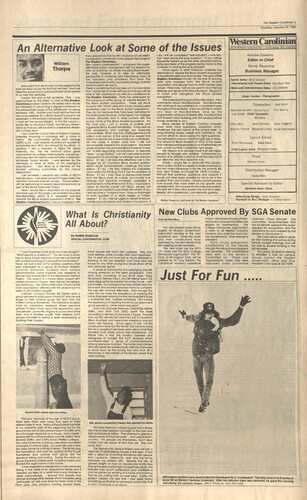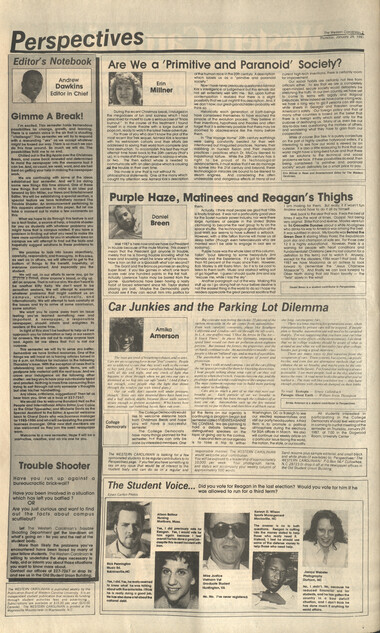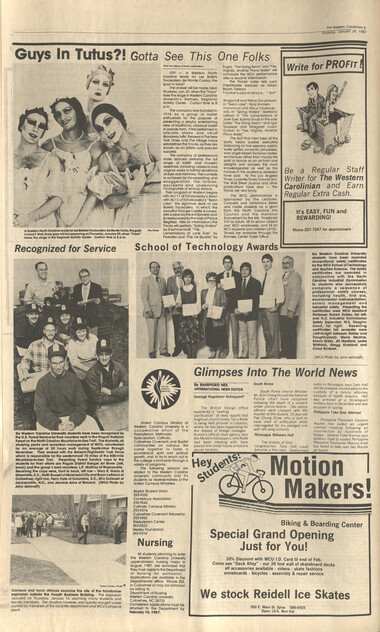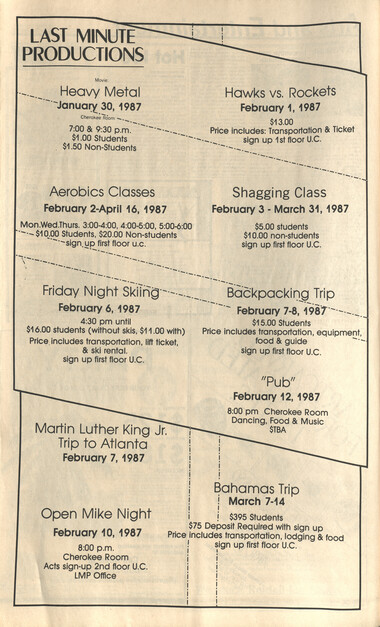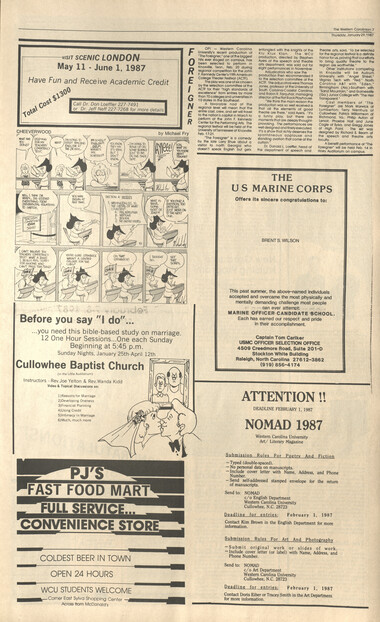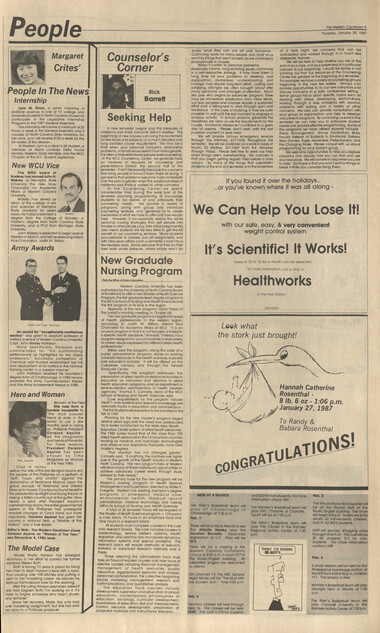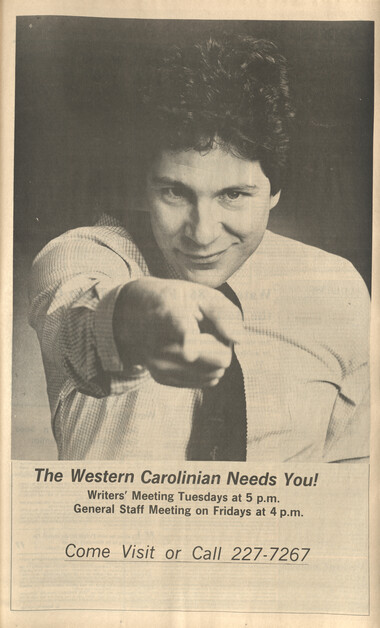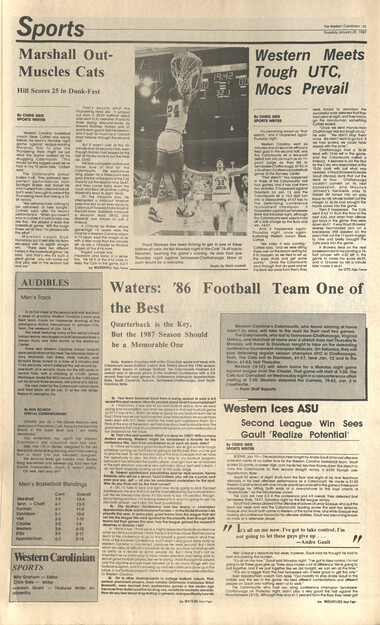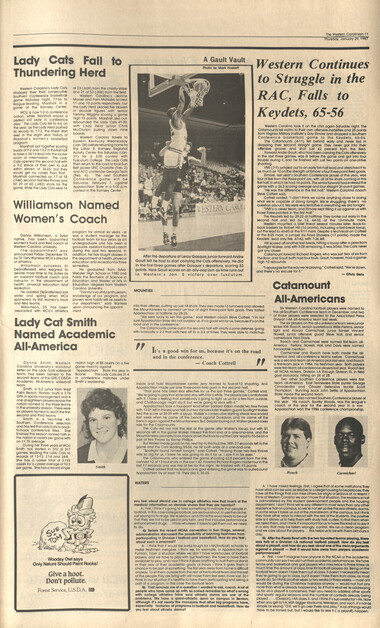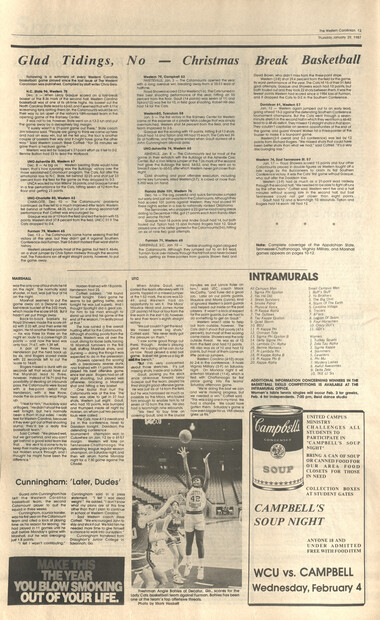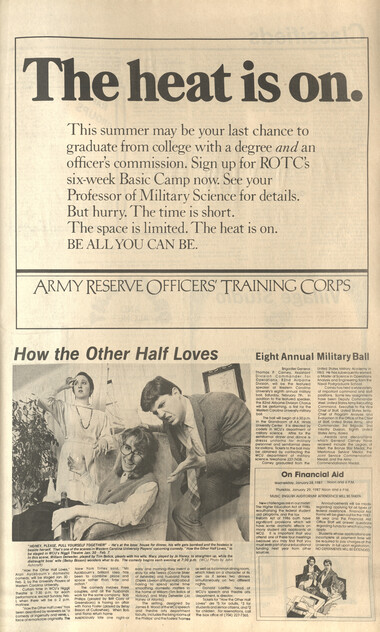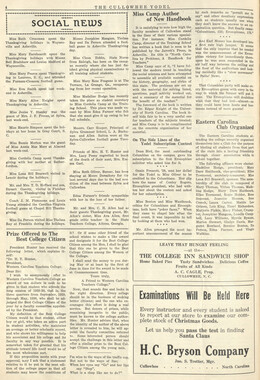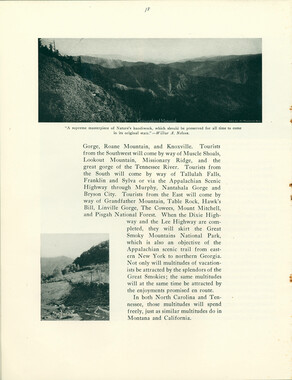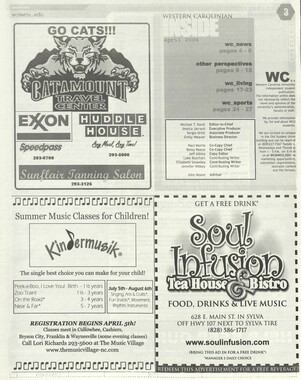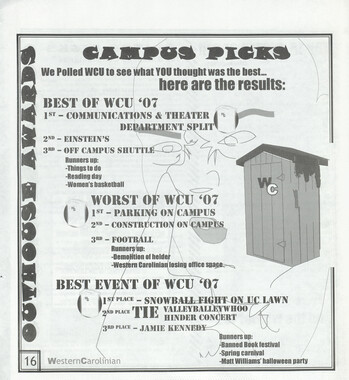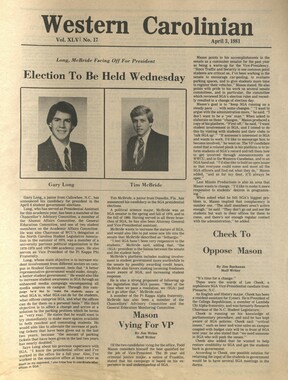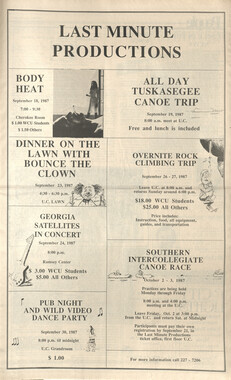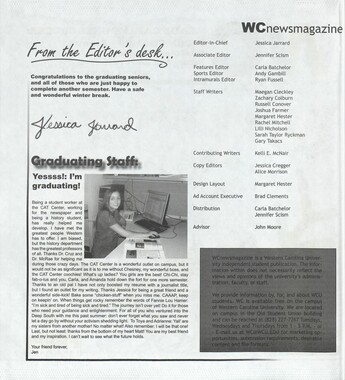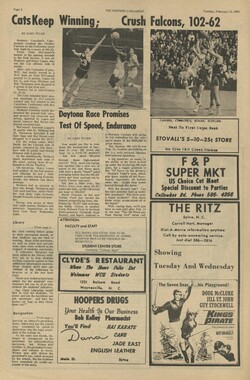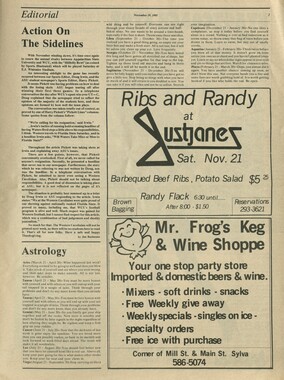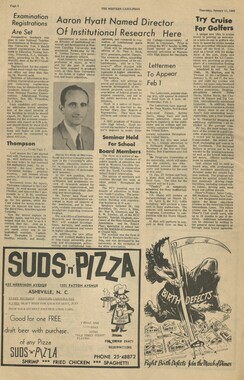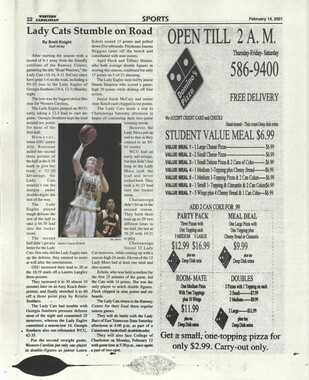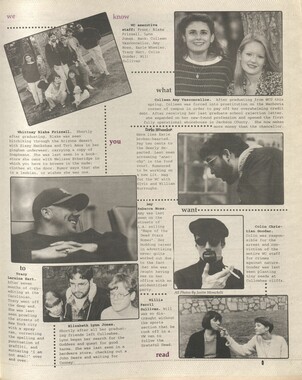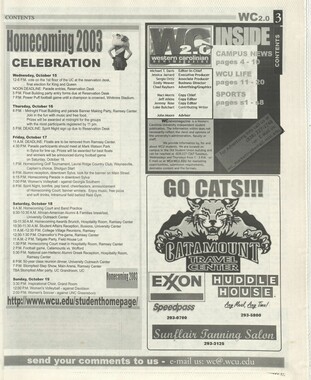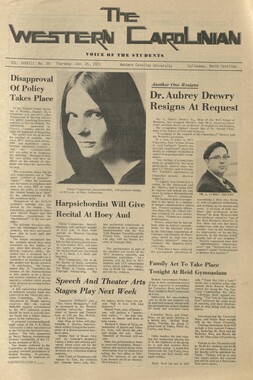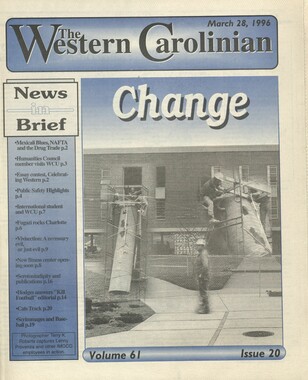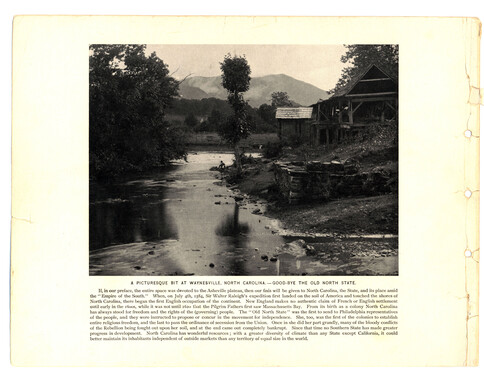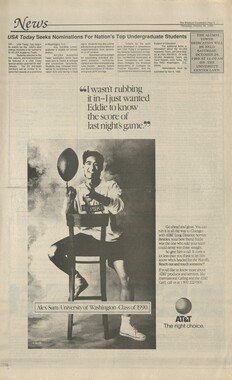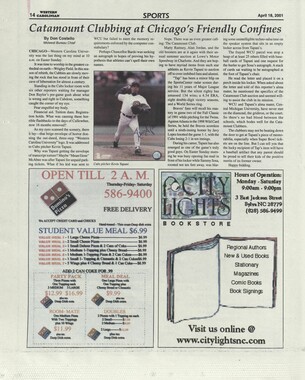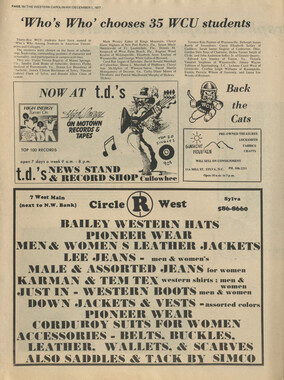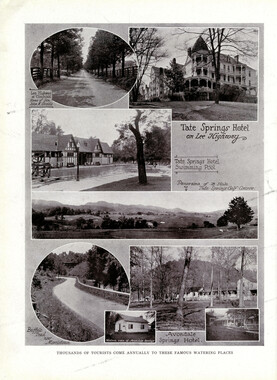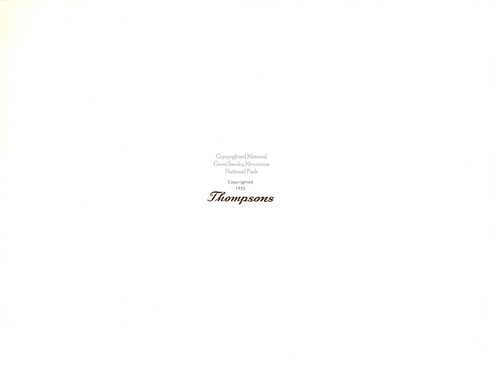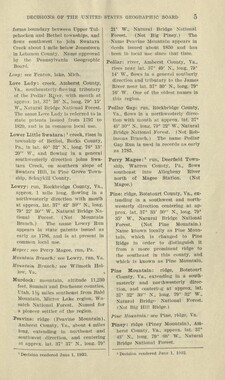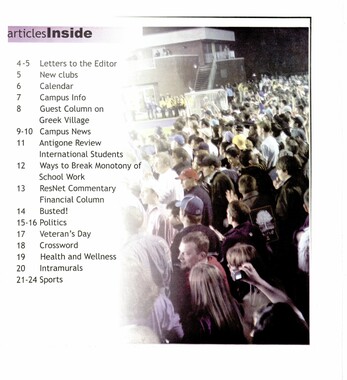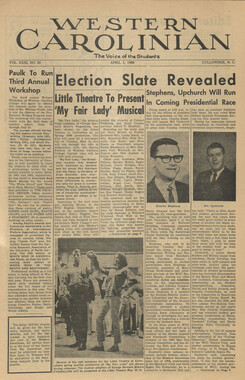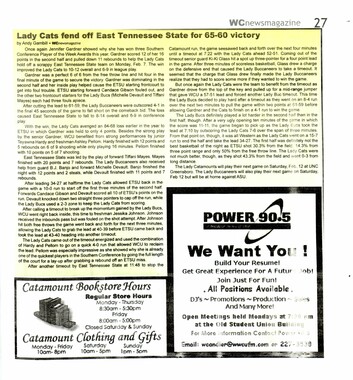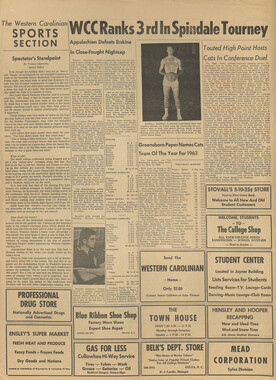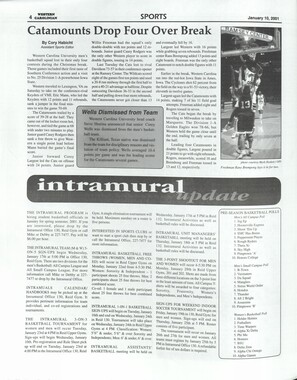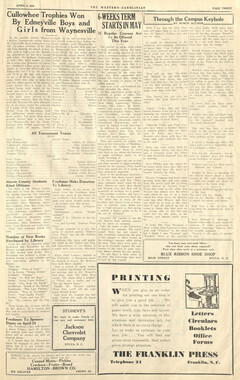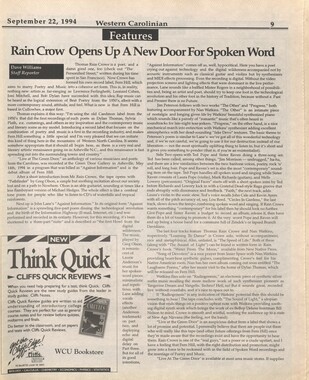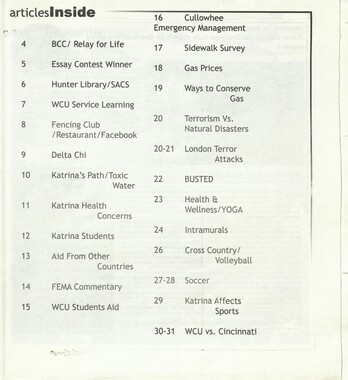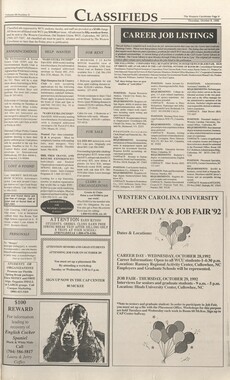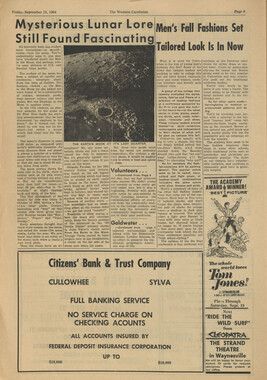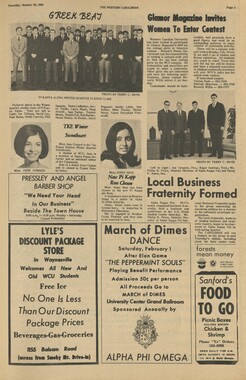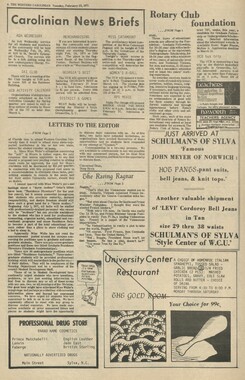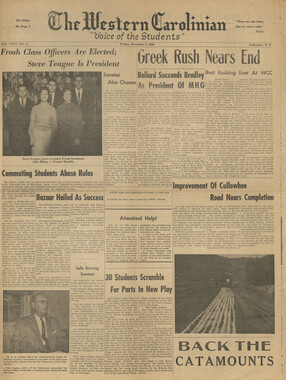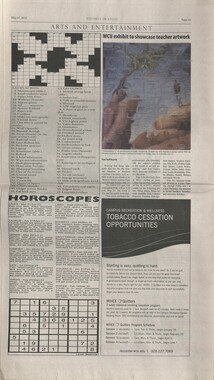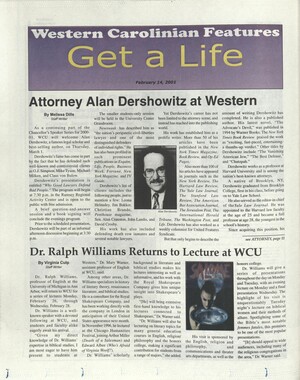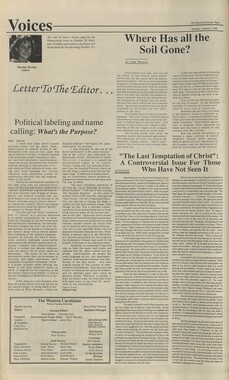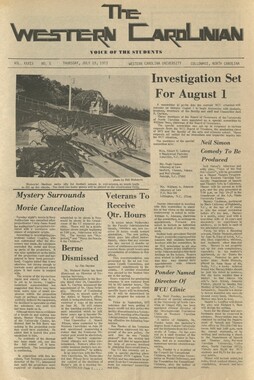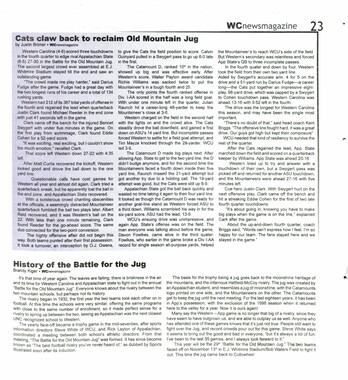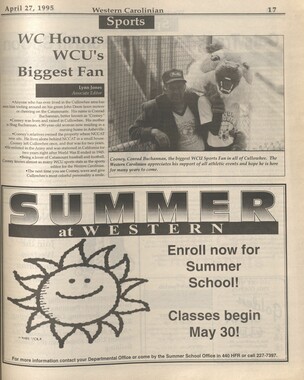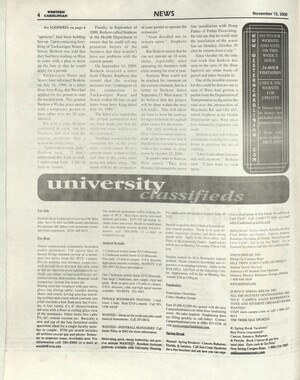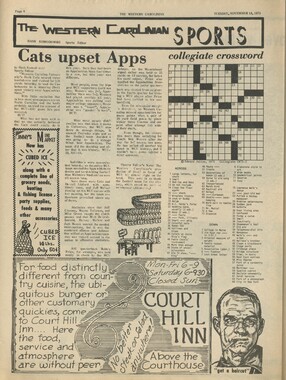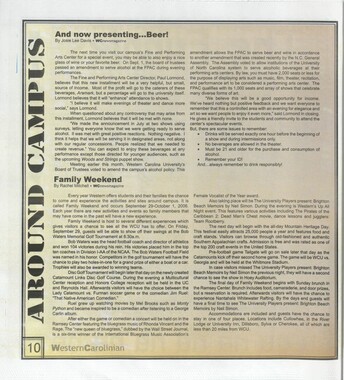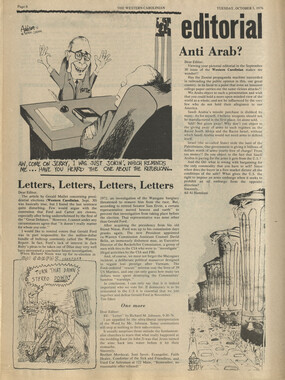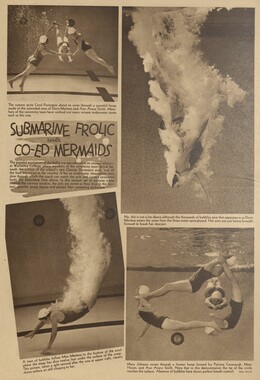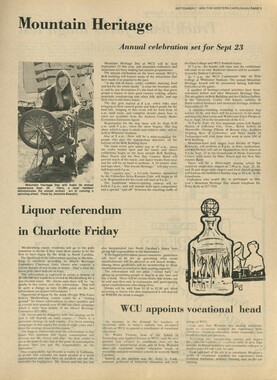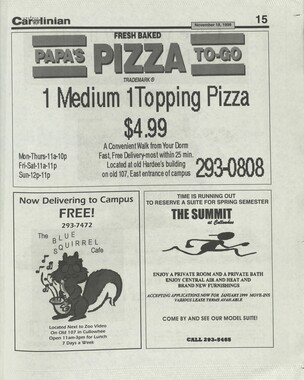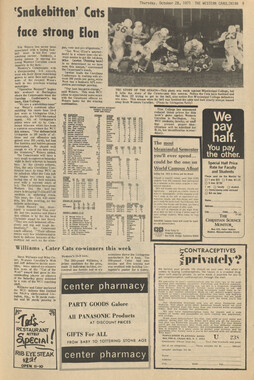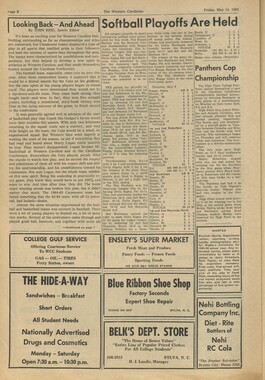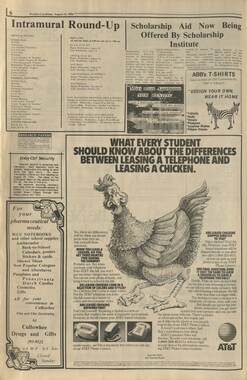Western Carolina University (21)
View all
- Canton Champion Fibre Company (2308)
- Cherokee Traditions (291)
- Civil War in Southern Appalachia (165)
- Craft Revival (1942)
- George Masa Collection (137)
- Great Smoky Mountains - A Park for America (3080)
- Highlights from Western Carolina University (422)
- Horace Kephart (973)
- Journeys Through Jackson (159)
- LGBTQIA+ Archive of Jackson County (89)
- Oral Histories of Western North Carolina (317)
- Picturing Appalachia (6617)
- Stories of Mountain Folk (413)
- Travel Western North Carolina (153)
- Western Carolina University Fine Art Museum Vitreograph Collection (129)
- Western Carolina University Herbarium (92)
- Western Carolina University: Making Memories (738)
- Western Carolina University Publications (2491)
- Western Carolina University Restricted Electronic Theses and Dissertations (146)
- Western North Carolina Regional Maps (71)
- World War II in Southern Appalachia (131)
University of North Carolina Asheville (6)
View all
- Allanstand Cottage Industries (62)
- Appalachian National Park Association (53)
- Bennett, Kelly, 1890-1974 (1463)
- Berry, Walter (76)
- Brasstown Carvers (40)
- Carver, George Washington, 1864?-1943 (26)
- Cathey, Joseph, 1803-1874 (1)
- Champion Fibre Company (233)
- Champion Paper and Fibre Company (297)
- Cherokee Indian Fair Association (16)
- Cherokee Language Program (22)
- Crowe, Amanda (40)
- Edmonston, Thomas Benton, 1842-1907 (7)
- Ensley, A. L. (Abraham Lincoln), 1865-1948 (275)
- Fromer, Irving Rhodes, 1913-1994 (70)
- George Butz (BFS 1907) (46)
- Goodrich, Frances Louisa (120)
- Grant, George Alexander, 1891-1964 (96)
- Heard, Marian Gladys (60)
- Kephart, Calvin, 1883-1969 (15)
- Kephart, Horace, 1862-1931 (313)
- Kephart, Laura, 1862-1954 (67)
- Laney, Gideon Thomas, 1889-1976 (439)
- Masa, George, 1881-1933 (61)
- McElhinney, William Julian, 1896-1953 (44)
- Niggli, Josephina, 1910-1983 (10)
- North Carolina Park Commission (105)
- Osborne, Kezia Stradley (9)
- Owens, Samuel Robert, 1918-1995 (11)
- Penland Weavers and Potters (36)
- Roberts, Vivienne (15)
- Roth, Albert, 1890-1974 (142)
- Schenck, Carl Alwin, 1868-1955 (1)
- Sherrill's Photography Studio (2565)
- Southern Highland Handicraft Guild (127)
- Southern Highlanders, Inc. (71)
- Stalcup, Jesse Bryson (46)
- Stearns, I. K. (213)
- Thompson, James Edward, 1880-1976 (226)
- United States. Indian Arts and Crafts Board (130)
- USFS (683)
- Vance, Zebulon Baird, 1830-1894 (1)
- Weaver, Zebulon, 1872-1948 (58)
- Western Carolina College (230)
- Western Carolina Teachers College (282)
- Western Carolina University (2008)
- Western Carolina University. Mountain Heritage Center (18)
- Whitman, Walt, 1819-1892 (10)
- Wilburn, Hiram Coleman, 1880-1967 (73)
- Williams, Isadora (3)
- Cain, Doreyl Ammons (0)
- Crittenden, Lorraine (0)
- Rhodes, Judy (0)
- Smith, Edward Clark (0)
- Appalachian Region, Southern (3032)
- Asheville (N.C.) (1945)
- Avery County (N.C.) (26)
- Blount County (Tenn.) (195)
- Buncombe County (N.C.) (1680)
- Cherokee County (N.C.) (283)
- Clay County (N.C.) (556)
- Graham County (N.C.) (238)
- Great Smoky Mountains National Park (N.C. and Tenn.) (525)
- Haywood County (N.C.) (3573)
- Henderson County (N.C.) (70)
- Jackson County (N.C.) (4924)
- Knox County (Tenn.) (35)
- Knoxville (Tenn.) (13)
- Lake Santeetlah (N.C.) (10)
- Macon County (N.C.) (421)
- Madison County (N.C.) (216)
- McDowell County (N.C.) (39)
- Mitchell County (N.C.) (135)
- Polk County (N.C.) (35)
- Qualla Boundary (982)
- Rutherford County (N.C.) (78)
- Swain County (N.C.) (2185)
- Transylvania County (N.C.) (270)
- Watauga County (N.C.) (12)
- Waynesville (N.C.) (86)
- Yancey County (N.C.) (72)
- Aerial Photographs (3)
- Aerial Views (60)
- Albums (books) (4)
- Articles (1)
- Artifacts (object Genre) (228)
- Bibliographies (1)
- Biography (general Genre) (2)
- Cards (information Artifacts) (38)
- Clippings (information Artifacts) (192)
- Copybooks (instructional Materials) (3)
- Crafts (art Genres) (622)
- Depictions (visual Works) (21)
- Design Drawings (1)
- Digital Moving Image Formats (2)
- Drawings (visual Works) (185)
- Envelopes (101)
- Exhibitions (events) (1)
- Facsimiles (reproductions) (1)
- Fiction (general Genre) (4)
- Financial Records (12)
- Fliers (printed Matter) (67)
- Glass Plate Negatives (381)
- Guidebooks (2)
- Internegatives (10)
- Interviews (822)
- Land Surveys (102)
- Letters (correspondence) (1045)
- Manuscripts (documents) (618)
- Maps (documents) (177)
- Memorandums (25)
- Minutes (administrative Records) (59)
- Negatives (photographs) (6090)
- Newsletters (1290)
- Newspapers (2)
- Notebooks (8)
- Occupation Currency (1)
- Paintings (visual Works) (1)
- Pen And Ink Drawings (1)
- Periodicals (194)
- Personal Narratives (10)
- Photographs (12977)
- Plans (maps) (1)
- Poetry (6)
- Portraits (4568)
- Postcards (329)
- Programs (documents) (181)
- Publications (documents) (2444)
- Questionnaires (65)
- Relief Prints (26)
- Sayings (literary Genre) (1)
- Scrapbooks (282)
- Sheet Music (2)
- Slides (photographs) (402)
- Songs (musical Compositions) (2)
- Sound Recordings (801)
- Specimens (92)
- Speeches (documents) (18)
- Tintypes (photographs) (8)
- Transcripts (328)
- Text Messages (0)
- A.L. Ensley Collection (275)
- Appalachian Industrial School Records (7)
- Appalachian National Park Association Records (336)
- Axley-Meroney Collection (2)
- Bayard Wootten Photograph Collection (20)
- Bethel Rural Community Organization Collection (7)
- Blumer Collection (5)
- C.W. Slagle Collection (20)
- Canton Area Historical Museum (2110)
- Carlos C. Campbell Collection (462)
- Cataloochee History Project (64)
- Cherokee Studies Collection (4)
- Daisy Dame Photograph Album (5)
- Daniel Boone VI Collection (1)
- Doris Ulmann Photograph Collection (112)
- Elizabeth H. Lasley Collection (1)
- Elizabeth Woolworth Szold Fleharty Collection (4)
- Frank Fry Collection (95)
- George Masa Collection (173)
- Gideon Laney Collection (452)
- Hazel Scarborough Collection (2)
- Hiram C. Wilburn Papers (28)
- Historic Photographs Collection (236)
- Horace Kephart Collection (861)
- Humbard Collection (33)
- Hunter and Weaver Families Collection (1)
- I. D. Blumenthal Collection (4)
- Isadora Williams Collection (4)
- Jesse Bryson Stalcup Collection (47)
- Jim Thompson Collection (224)
- John B. Battle Collection (7)
- John C. Campbell Folk School Records (80)
- John Parris Collection (6)
- Judaculla Rock project (2)
- Kelly Bennett Collection (1482)
- Love Family Papers (11)
- Major Wiley Parris Civil War Letters (3)
- Map Collection (12)
- McFee-Misemer Civil War Letters (34)
- Mountain Heritage Center Collection (4)
- Norburn - Robertson - Thomson Families Collection (44)
- Pauline Hood Collection (7)
- Pre-Guild Collection (2)
- Qualla Arts and Crafts Mutual Collection (12)
- R.A. Romanes Collection (681)
- Rosser H. Taylor Collection (1)
- Samuel Robert Owens Collection (94)
- Sara Madison Collection (144)
- Sherrill Studio Photo Collection (2558)
- Smoky Mountains Hiking Club Collection (616)
- Stories of Mountain Folk - Radio Programs (374)
- The Reporter, Western Carolina University (510)
- Venoy and Elizabeth Reed Collection (16)
- WCU Gender and Sexuality Oral History Project (36)
- WCU Mountain Heritage Center Oral Histories (25)
- WCU Oral History Collection - Mountain People, Mountain Lives (71)
- WCU Students Newspapers Collection (1923)
- Western North Carolina Tomorrow Black Oral History Project (69)
- William Williams Stringfield Collection (2)
- Zebulon Weaver Collection (109)
- African Americans (390)
- Appalachian Trail (35)
- Artisans (521)
- Cherokee art (84)
- Cherokee artists -- North Carolina (10)
- Cherokee language (21)
- Cherokee pottery (101)
- Cherokee women (208)
- Church buildings (190)
- Civilian Conservation Corps (U.S.) (111)
- College student newspapers and periodicals (2012)
- Dams (108)
- Dance (1023)
- Education (222)
- Floods (63)
- Folk music (1015)
- Forced removal, 1813-1903 (2)
- Forest conservation (220)
- Forests and forestry (1198)
- Gender nonconformity (4)
- Great Smoky Mountains National Park (N.C. and Tenn.) (181)
- Hunting (47)
- Landscape photography (25)
- Logging (122)
- Maps (83)
- Mines and mineral resources (9)
- North Carolina -- Maps (18)
- Paper industry (38)
- Postcards (255)
- Pottery (135)
- Railroad trains (72)
- Rural electrification -- North Carolina, Western (3)
- School integration -- Southern States (2)
- Segregation -- North Carolina, Western (5)
- Slavery (5)
- Sports (452)
- Storytelling (243)
- Waterfalls -- Great Smoky Mountains (N.C. and Tenn.) (66)
- Weaving -- Appalachian Region, Southern (280)
- Wood-carving -- Appalachian Region, Southern (328)
- World War, 1939-1945 (173)
Western Carolinian Volume 52 Number 16
Item
Item’s are ‘child’ level descriptions to ‘parent’ objects, (e.g. one page of a whole book).
-
-
The Western Carolinian 3 Thursday, January 29, 1987 An Alternative Look at Some of the Issues Jesus said that we should not be judged by the bark we wear but by the fruit that we bear. We must heed the words of our Lord and Master as he speaks to us over the centuries. Toward the end of fall semester, 1986, I was approached by the editor in chief of The Western Caroiinian,Andrew Dawkins. He asked me if I would be interested in becoming a regular contributor to the perspectives page of the newspaper for spring semester, 1987. Andrew and I both felt that the time was long overdue for a Black student's voice to be expressed in the school's newspaper. First However, I must set the record straight. In this first column, I would like to introduce myself, and tell you where I stand so that you will be able to understand where I am coming from. I am currently a junior here at Western Carolina University majoring in sociology with a minor in history. My cummulative grade point average (QPR) is 3.3. I just recently received an academic scholarship from WCU as a reward for my efforts. In addition I am a member of Alpha Phi Alpha Paternity, Inc., the first national black greek organization for college male students. Last spring, I was inducted into Alpha Lambda Delta, a freshman scholastic honor society. I was elected by the members to serve as editor of this prestigious organization. I also serve as a member on the student advisory committee for the history department. Last semester I became very active in WCU's forensic team. Last week I joined Pi Kappa Delta, the national honorary forensic society. This semester I will be performing in several plays/productions as part of the Black Ensemble Project. Now, I would like to elaborate on my purpose and how I got on this page. Last semester I founded Neo-Blackness, which is a newsletter oriented towards the Black student population at WCU. The Western Carolinian'seditor, was so impressed with the publications that he felt I would be an excellent candidate to contribute to the perspectives page of The Western Carolinian. After careful consideration, I accepted this quasi- affirmative action arrangement with the freedom to write on anything I so chose including Black issues. My task, however is to offer an alternative perspective in analizing and interpreting many of the concerns and problems that face the Cullowhee community, our society at large, and the world in which we live in. There is something that has been on my mind lately that I would like to share with you so that you will be able to like understand my role as a contributor to The Western Carolinian. There has developed on this campus an entire group of "captive leaders" in the Black student population. These are Black students with ceratin skills who could provide useful leadership roles for the Black student population. They do not because they have been beholden to the white power structure. As for myself, lamcollege- trained, articulate and in daily contact with the young minds of the Black student population. For the most part, I am a source of positive and aggressive Black student leadership. It may well be that leadership and prestige are basically incompatible. When one fully challenges the racist system, one cannot, at the same time, expect that systemto reward one or even treat one comfortably. Let me make it crystal clear that I will not accomodate myself to the racist system. The white power structure has provided Black students "a way out" of their degrading minority status: to become "white," or assimilated. I will not capitulate to social subjugation in exchange for prestige and dubious status. If I do, I will become effectively lost to the struggle for an improved Black student position which would fundamentally challenge the racist system. If I do, I will also mislead the Cullowhee community into thinking that it has the sanction of Blacks. If I do, I may have to disassociate myself from the Black race, its culture, community and heritage and become immersed (dispersed is another term) in the white world. If I do, I may have to cease to identify myself with Black people yet obviously be unable to assimilate with whites. If I do, I will become a "marginal man," living on thefringes of both societies in a world largely of "make- believe." If I do, I wil be urged to adopt American middle-class standards and values in my column. If I do, I will be considered "well-adjusted"—one who has "risen above the race question." If I do, I will be frequently helped up by the white establishment as living examples of the progress being made by this university in solving the race problem. Once again, a white American university has attempted to deprive the Black student population of its potential skills and brain power. The goal ofThe Western Carolinian should not be one of draining skills and energies from the Black student population and expose them to white middle-class values. Personally, I will not be used to blunt the true feelings and goals of the Black students. My goal is to build and strengthen the Black student population. This is precisely the goal of Neo-Blackness. Afew comments about Neo-Blackness: Neo-Blackness will continue to be published on a consistent basis throughout this semester. If you would like to obtain any issue of Neo-Blackness, drop by the Organization of Ebony Students offic, located in the Old Student Union Building and the issue(s) will be made available to you. Black people at Western Carolina University must raise hard questions, questions which challenge the very nature of the school itself: its long-standing values, beliefs and institutions. We cannot afford to avoid raising the right questions. Our self respect and our moral integrity are at stake. The victory for Black students at WCU in the issues that I will discuss this semester is not whether fheyare won or lost; but that I raised the right issues. My mission is to provide hope that will inspire people to struggle and achieve. Futhermore, my mission is to provide a plan to show the way out of our dilemma and then lead the way. Finally, I would like to dedicate this column, which is also my first in a series of weekly columns, to the two major influences in my life, my parents, Bill and Jean Thorpe of Chapel Hill, North Carolina. Without their patience, guidance and support, it would not have been possible for me to be in the position that I am in today. I simply cannot express how crucial they have been to my growth and development. For my parents who love and care for me and for a God who spared me and for a sister, Beverly, who understood, I am eternally grateful. William Thorpe is a staff writer for The Western Carolinian. Western Carolinian 704) 2Z7-7267 Western Carolina University PO Box 66Cullowhee, North Carolina 2g23 Andrew Dawkins Editor-in-Chief Randy Rosenthal Business Manager Sports Editor Billy Graham International and People Editor Ransford Neil News and Entertainment Editor Erin Millner Edwin Carlton ■ Photographer Typesetters Bob Bohl Marvetta Daniels Bernd Horn Kim Morris Lisa Cable Chief Typesetter Writers Chris Geis Brad Kimzey Lena Coggins William Thorpe Margaret Crites Scott Stalmasek Layout Artists Scott Stalmasek Keile Allen Chief Layout Artist Margaret Crites Proof Sharon Smith Distribution Manager Keile Allen Special Assistant to Editor Michelle Karen Davis Advertising Design - Gray Erlacher Assistant to Bus. Manager — Cheryl Davis What Is Christianity All About? By MARIE WARLICK SPECIAL CONTRIBUTOR, CCM New Clubs Approved By SGA Senate Rom the SGA Office "I can'thammeranailatall, much less straight!" "What exactly is sheetrock?" "Do we have to know how to read a tape measure or can we just mark off with our feet how long of a piece of wood we need?" These are just a few of the endless questions that were expressed as a group of fourteen Western Carolina University students from various denominations came together one weekend to discuss their involvement in the Appalachia Service Project. This project is a home repair project with centers located in Virginia, West Virginia, Tennessee, and Kentucky. The United Methodist Church is the main organization affiliated with the project but it is open to all Christian peqpfe. Catholic Campus Minister Bill Mehle took a group last year to participate in the A.S.P. and he was eager to take another group this year from the United Campus Ministeries. The interested students have an orientation weekend where everyone gathers to learn more about the Appalachia area and people. Jonesville, Virginia is a poor area of the state and if families qualify then different AS.P. groups volunteer to spend a week weatherizing or building their houses. these people are much like ourselves. They, too, have feelings, pride, humility, faith, and happiness. The 13 year old son took just as much pleasure in showing us the old deserted coal mine near the house as any other young boy would show off his new computer game. A sense of community and belonging was felt among everyone as the week progressed. One work crew consisting of Lea Anne Alger, Greg McAlindon Debbie Dean, and Bill Mehle spent the week digging the foundation for a new house... with just shovels. According to members of their crew, the teamwork that evolved enabled them to complete the task with minimal difficulties. Even though this crew did not have the experience of meeting the family they were working for the members felt it to be a worthwhile task. Debbie remarked, "Not having the experience of meeting the family just gives me a good excuse to come back next year!" Elain Tola, Michelle Fleeman, Chris White, Aylette Griffin, and Matt Doll (ASU) spent the week renovating a kitchen in the family's house. They first tore out the old kitchen and then put in insulation, fitted, mudded, and taped new sheetrock, and put down new flooring. Once again, it was not the construction work but the family that came to mind first as a couple of members were asked what they recalled most vividly about their experience. For Elaine Tola it was the family's openess and willingness to accept Ihe A.S.P. students which communicated a sense of comfortableness among everyone involved. The family had children who also gave the workers quite a few fun memories to recall such as the young boy who shot off a firecracker in the middle of the kitchen where they were working. Two new student clubs will be eligible for Student Government Association funding in the next academic year. These two clubs and their constitutions were approved by the SGA Senate at its last meeting of last semester. The new clubs are the WCU "W" Club and the WCU College Democrats organization. The "W" Club, or Monogram Club, will be advised by Dr. Tony Baldwin, the Catamount women's basketball coach. Members ofvarsityathletic teams who have earned letters are eligible for membership. The College Democrats organization is open to all Western Carolina students, who meet the club's bylaw requirements. Mark Weaver is president. Both clubs presented constitutions to the Senate through the office of vice president last semester. The constitutions were sent to the Senate's Committee on Clubs and Organizations, where they were approved under committee chairman Chad Gimbert. The committee recommended that the full Senate approve the clubs' requests for recognition, and the resolutions for such passed by the Senate on December 2. The clubs will be able to apply for SGA funding this spring during Senate budget hearings, and will be able to receive funding in the fall semester. Any group of persons wishing to establish a club on campus should contact the Student Government office and Vice President Chris Geis at 227-7299. Just For Fun Richard Griffin adeptly tape* the celling. This year because of the size of WCU'S group, there were three work crews that went to three different sites to work. Many of the students had little to no carpentry skills at the beginning but by the second day we all discovered it wasn't too difficult to do a thorough repair job on a house. As for myself, I worked with four other students, Lind Hill, Teresa Ashe, Richard Griffin, and Cathy Bond (Pfeiffer College). Our crew joined the Louisiana crew which consisted of people of various ages. Our work site was a new two story home for a family of seven. The family dug the foundation and built the outside of the house themselves and another AS.P group did the electrical wiring and roofing. During the week our group insulated, sheetrocked, mudded, taped, and floored the eight rooms in the house. A new experience besides the construction was being in the midst of an Appalachia family and it opened my eyes to a world that many choose to never acknowledge. I learned that despite their almost unimaginable lifestyle which includes using outhouses, an old coal stove for heat, cows in the I front yard, and chickens running around freely, off* w ^ 1 t^^^Tv^n - With obvious concentration Theresa Ashe tpacktes the celling. Michelle Fleeman noticed quickly that in those hills the families seldom had eight to five jobs and tight schedules to follow. They seemed to give he a deeper sense of God because "...that area is God's country. The people are themselves, don't wear masks, and are proud of who they are. They can cook, tool" The Appalachia Service Project was not just a week full of weatherizing houses in the area. It was also a week full of forming friendships with people from Louisiana, Oklahoma, staff, and the family members we worked with. Besides this, we all gained insight on how an Appalachia family lives during the year and the tight budget they are on. We learned how much satisfaction and confidence can be gained by working at a home and knowing that we are putting forth our best effort, finally, the project helped me feel that I was really doino something worthwhile for someone, and to me, that is what Christianity is all about. . Wilmington resident Larry Gant traded the blackboard for a "snowboard" Thursday when 6 to 8 inches of snow fell at Western Carolina University. After his calculus class was canceled, he spent the mornins calculating the campus slopes. (WCU Photo by John Ashcraft)
Object
Object’s are ‘parent’ level descriptions to ‘children’ items, (e.g. a book with pages).
-
The Western Carolinian is Western Carolina University's student-run newspaper. The paper was published as the Cullowhee Yodel from 1924 to 1931 before changing its name to The Western Carolinian in 1933.
-

